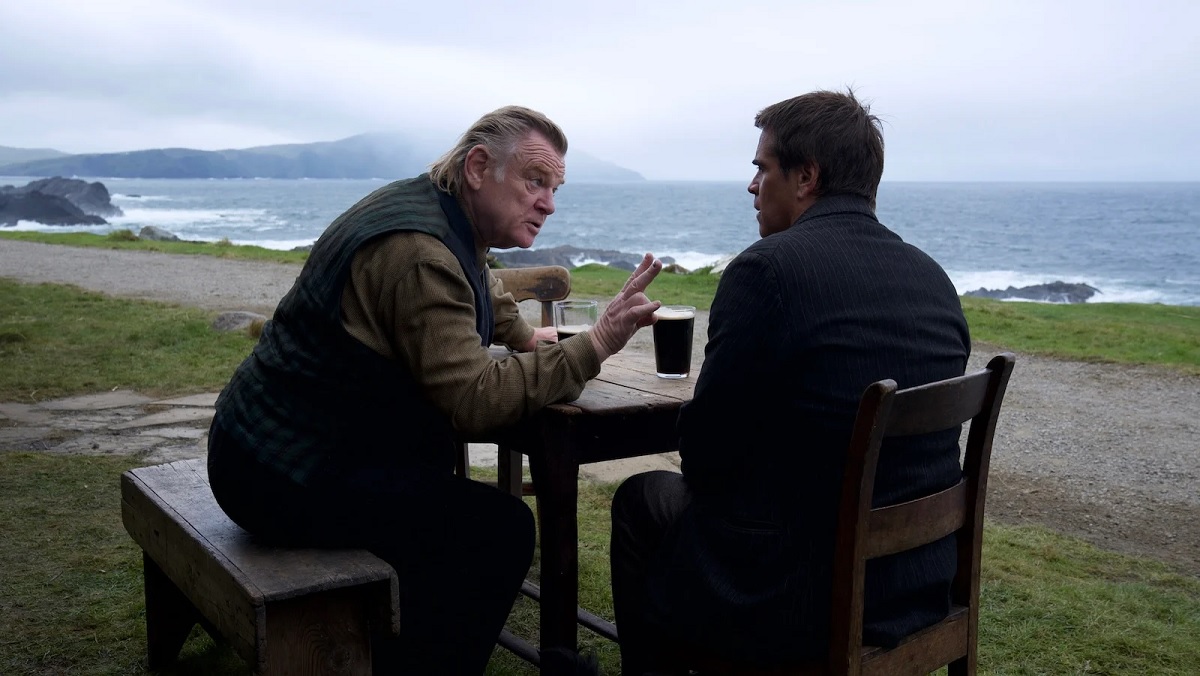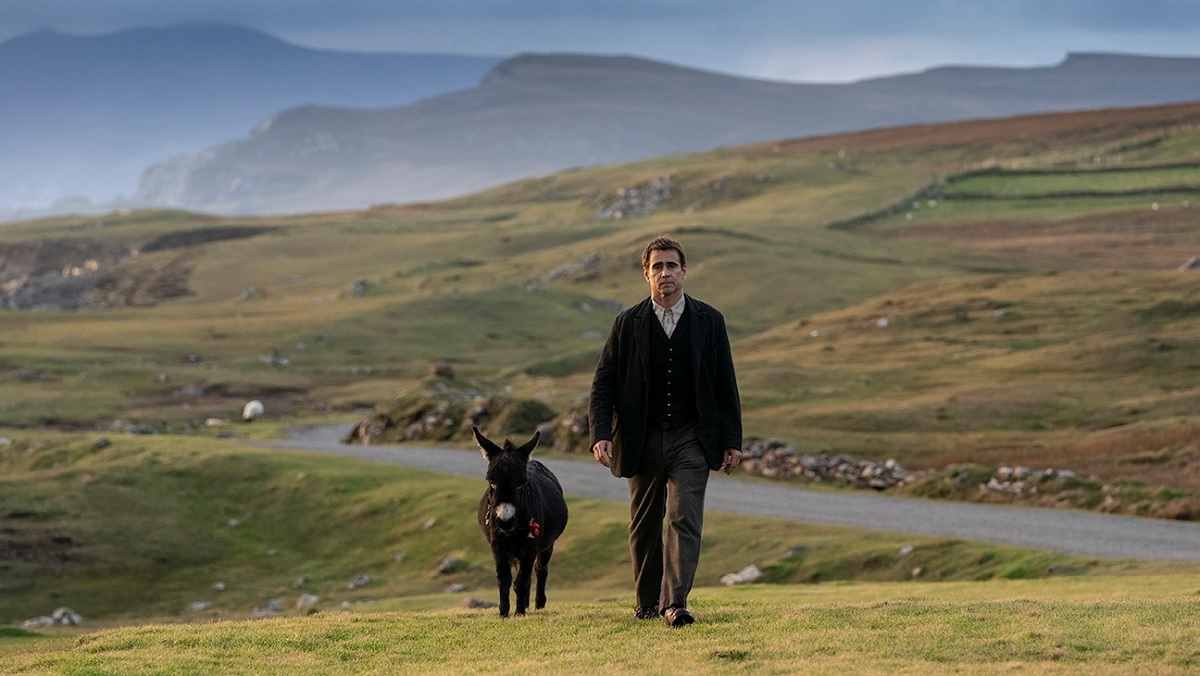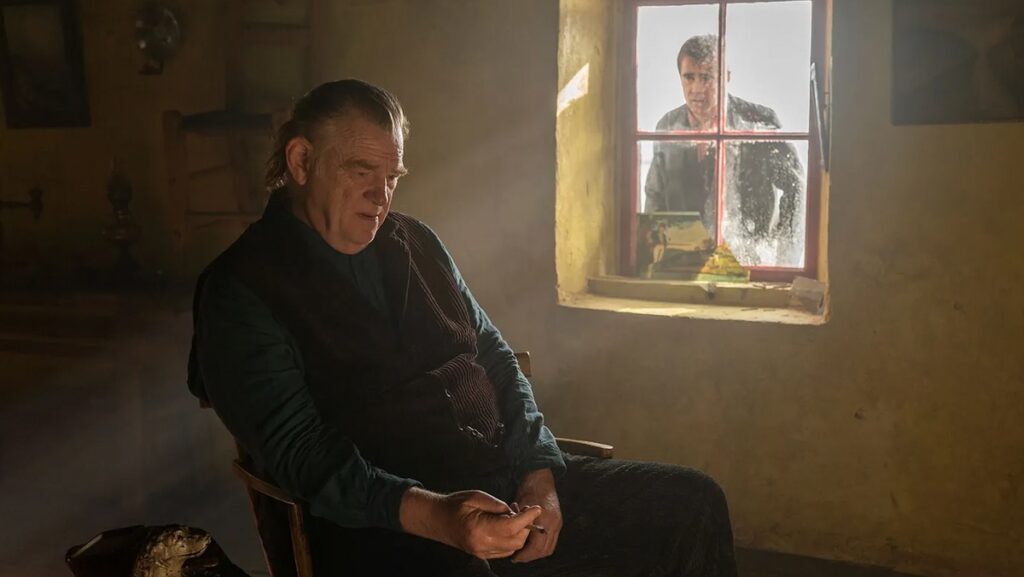Throughout Martin McDonagh’s The Banshees of Inisherin, a film version of an earlier unproduced stage play, the rural island community comments on and even sees and hears the Irish Civil War on the mainland. It seems both incredibly close and all too far away, the problems of people both other and the same. The screams of mortar fire in a war of brother versus brother could well be the titular banshees, signifying the breakdown of even the simplest forms of fraternity. After all, the movie is just about one guy not wanting to be another guy’s friend anymore.
The film seems a bit like an outlier for McDonagh’s cinema, but it’s right at home with his earlier playwrighting pursuits. All of his early work deals with darkness in small Irish communities at some point in the past. The Banshees of Inisherin isn’t as slick as In Bruges, as zany as Seven Psychopaths, or as hard-bitten as Three Billboards. Is a slower, more lyrical affair, but one that for me captures the best of the auteur’s sense for small problems blown out of proportion to startling degrees. It’s easily my favorite since In Bruges and a lot of that has to do with the same two lead actors.
Colin Farrell plays Pádraic, a simple sheep farmer on an island off the west coast of Ireland in the 1920s. He’s a self-proclaimed nice person who loves spending his afternoons with his best friend Colm (Brendon Gleeson) down the pub. One fateful day, as Pádraic calls on Colm as he always does, his friend doesn’t go to the pub with him. He doesn’t want to sit with him at the pub. In fact, Colm eventually tells Pádraic, he doesn’t want to spend time with him at all anymore.

This, to Pádraic, is completely unbelievable. Why wouldn’t Colm want to be his friend anymore? The only real answer Colm can provide is that Pádraic keeps him from focusing on his music, composing and playing fiddle. Is that enough to warrant cutting off someone in a town of like 80 people? Pádraic’s book-learned sister Siobhan (Kerry Condon) thinks the whole thing is ridiculous, but no amount of reason can change Colm’s mind. Naturally, the sweet Pádraic is devastated, not least because he has to now hang out with the town fool Dominic (Barry Keoghan). Is it so wrong to be nice? Is creating art worth losing friends? How long can this feud last? You’d be surprised.
The long and short of it is The Banshees of Inisherin is a brilliant, moving, funny, and deeply tragic movie that will make you feel bad while you’re laughing. The omen of disaster looms large over each argument between Pádraic and Colm, just as the war rages across the narrow sea. Townsfolk say “Oh, the fighting will end soon” but we know well here in the future that that isn’t the case. McDonagh even gives one character a line about “why are they fighting each other when they could be fighting the English,” and you can’t help but laugh derisively.

Farrell and Gleeson are nothing short of wonderful. Gleeson as the stoic instigator of this strange Cold War conveys both a life of frustration and ultimate kindness of character despite everything. Farrell gets to play the confused, endlessly optimistic one who begins to harden as his bitterness at the situation grows. Condon and Keoghan are also brilliant, with the latter delivering one of the twitchiest performances in years.
The Banshees of Inisherin feels like putting on a favorite sweater that happens to have just fallen in a mud puddle. It’s chilly and unsavory but you still get a sense of the warmth and comfort underneath. I think everyone involved deserves awards consideration. It’s quite simply one of the best movies of the year.
Kyle Anderson is the Senior Editor for Nerdist. You can find his film and TV reviews here. Follow him on Instagram and Letterboxd.

